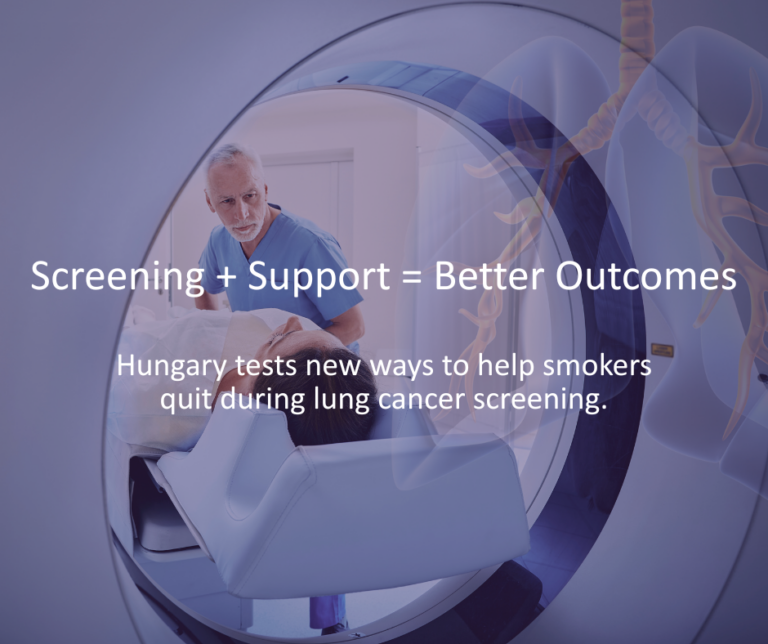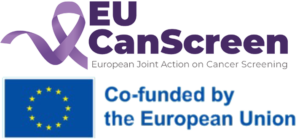Supporting Smoking Cessation as Part of Lung Cancer Screening – Hungary Leads with a New Protocol and Pilot

WP 8
As part of Work Package 8.5 of the EUCanScreen project, Hungary is collaborating in exploring how smoking cessation support can be effectively integrated into LDCT-based lung cancer screening. The National Korányi Institute of Pulmonology (NKIP) is implementing a new pilot study to test practical approaches to engaging smokers in cessation programmes during their screening journey, together with Finnish partners.
Recruitment Strategies
The umbrella review protocol titled “Recruitment Strategies for Lung Cancer Screening: An Umbrella Review Protocol” has recently been published on HRB Open Research, outlining the scientific foundation for this work.
LDCT
In parallel, the National Korányi Institute for Pulmonology will launch a three-year interventional study involving high-risk smokers referred for LDCT screening. The pilot will explore how a mobile app-based cessation tool and counselling delivered at or around the time of screening can improve quit rates and engagement. The inclusion period will begin in Q3 2025.
LUNG CANCER MORTALITY
This initiative builds on growing international evidence that pairing screening with cessation support can increase quit success by up to threefold and yield additional reductions in lung cancer mortality by as much as 14%.
WORKIN TOGETHER
Hungary’s activity in WP8.5 demonstrates how science, training, and innovation can work together to build future-ready, patient-centred screening programmes across Europe.
#EuCanScreen #CancerScreening #HealthCare #CancerPrevention #Pulmonology #LungCancer #SmokingCessation
🔗 Please don’t forget to Subscribe to EuCanScreen Newsletter! 💪
Subscribe to our newsletter to get news and updates.
Subscribe to our newsletter to get news and updates.

The general objective of EUCanScreen is to assure sustainable implementation of high-quality screening for breast, cervical and colorectal cancers, as well as implementation of the recently recommended screening programs – for lung, prostate and gastric cancers. EUCanScreen will facilitate the reduction of cancer burden and achieving equity across the EU.
This project has received funding from the European Union’s EU4HEALTH Programme under the Grant Agreement no 101162959










